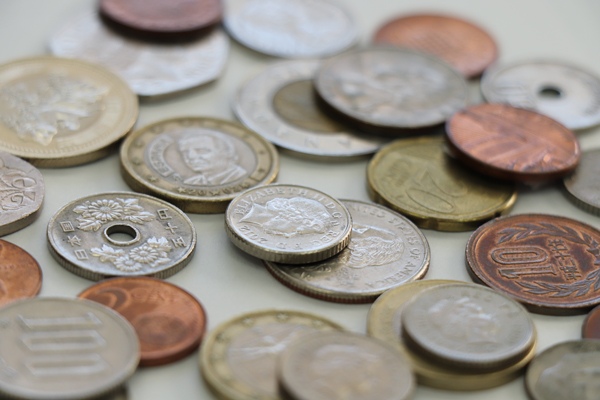Research News
Feb 16, 2023
Serial dependance bias: does it affect higher- or lower-order processing of perception?
Guessing coins value quickly demonstrates bias mechanism in cognition
5, 10, 50, 100! Does serial dependence bias act on high- or low-order cognitive processing?
Study participants were asked to guess the number, or the value of coins displayed on screen for half a second. Because guessing the value of the coins required some cognitive processing, researchers were able to test the effects of serial dependence bias for perceptual and cognitive processing separately.

Osaka, Japan – Serial dependence is a bias affecting perceptual experience, in which what you currently perceive tends to be biased toward what you have perceived immediately before. This phenomenon has been observed in tasks using different stimuli, including tilt perception, number perception, and motion perception, but it was not known if this bias occurred during sensory perception or cognition.
A research team, led by Professor Shogo Makioka from the Osaka Metropolitan University Graduate School of Sustainable System Sciences, conducted experiments on the serial dependence of number perception using coins, to see if serial perception bias occurred in lower-order perceptual or higher-order perceptual and cognitive processing.
Experiments were conducted in which between 8 to 32 Japanese coins of three types—silver one yen, gold five yen, and copper ten yen—were displayed on screen for half a second. In the first experiment, the 24 participants guessed the total number of coins that appeared on the screen 250 times; in the second experiment, participants saw coins appear on the screen, but guessed the total value of the money displayed 250 times. Serial dependence was confirmed for both tasks: it was found that a participant’s last guess, not the coins that they had just seen for half a second, had the greatest effect on how they answered. These results indicate that higher-order cognitive processing has a greater influence on the occurrence of serial dependence. Their findings were published in Scientific Reports.
“The results of this study show that our perceptual experiences and our decisions themselves influence our next decisions, which may be useful in capturing the tendency to misjudge and misunderstand in our daily lives,” explained Professor Makioka. “We believe that research advances on biases—such as the serial dependence bias—should be applied to how information is presented and can be used to create an environment that minimizes human error.”
Funding
Funding was provided by Japan Science and Technology Agency (Grant No. JPMJSP2139).
Paper Information
Journal: Scientific Reports
Title: Serial dependence in estimates of the monetary value of coins
DOI: 10.1038/s41598-022-24236-z
Author: Yukihiro Morimoto, Shogo Makioka
Publish: November 23, 2022
https://doi.org/10.1038/s41598-022-24236-z
Contact
Graduate School of Sustainable System Sciences
Prof. Shogo MAKIOKA
E-mail: makioka[at]omu.ac.jp
*Please change [at] to @.
SDGs
